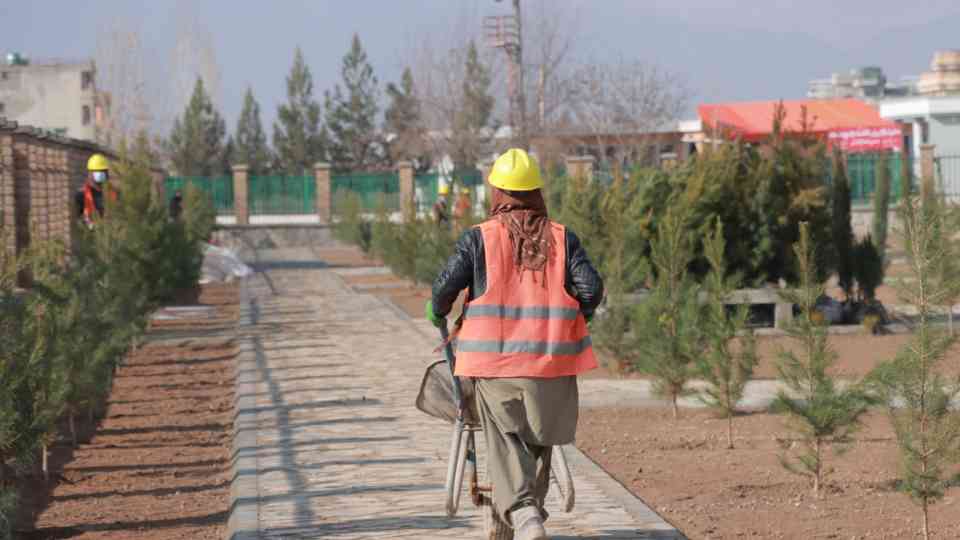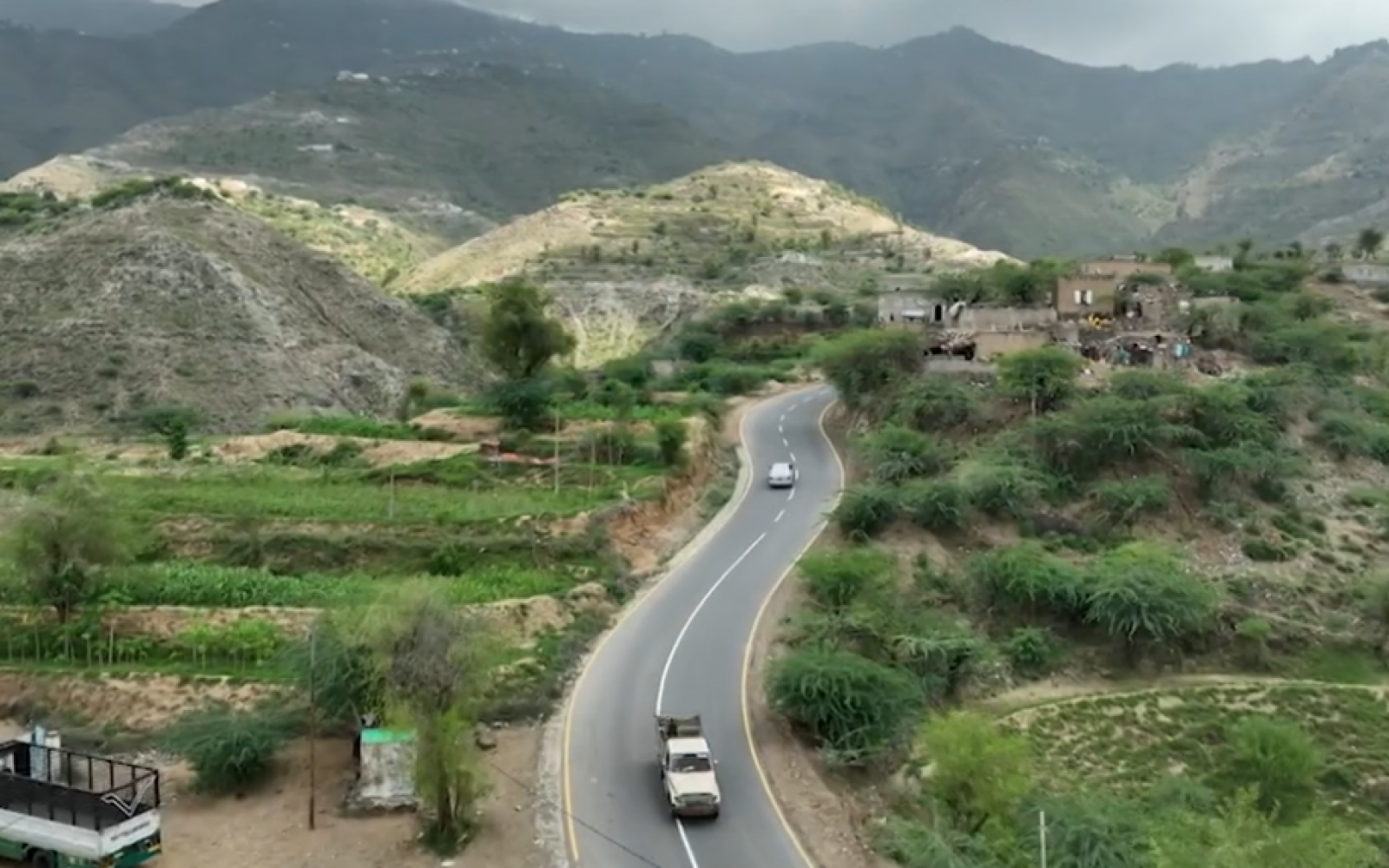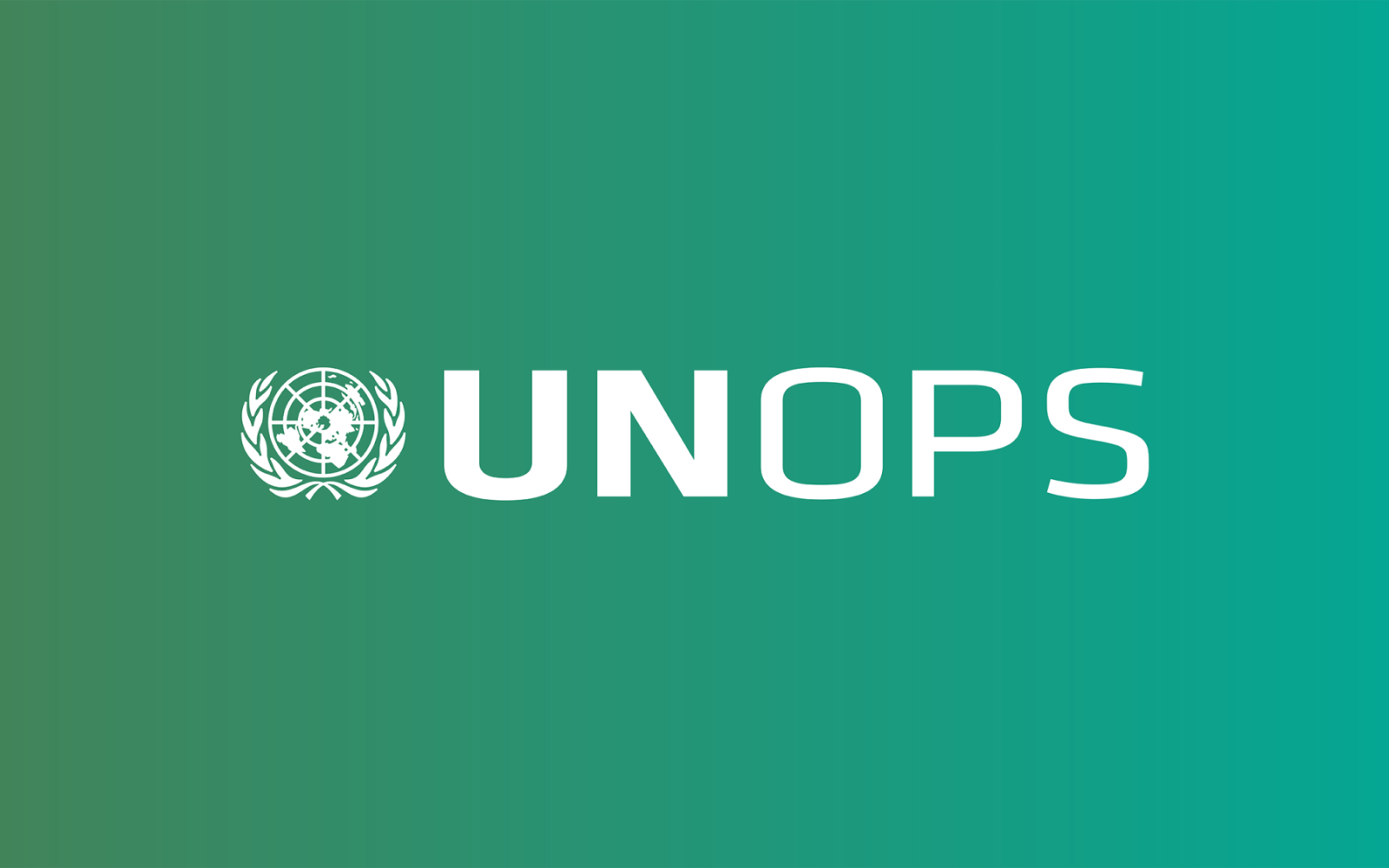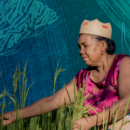The United Nations Office for Project Services (UNOPS)
Assistance that matters
As insurgent attacks intensify across a country struggling with a legacy of conflict, including the persistent threat of mines and explosive remnants of war, Afghanistan remains one of the most dangerous countries to live in.
Mohammad Khan's life now looks very different than it did in April 2016, when Taliban fighters blew up a truck packed with explosives near a Government compound killing around 60 people and injuring over 300 in the country's capital, Kabul. For Mr. Khan, a bus driver, the explosion destroyed his bus and his livelihood.
Far from Kabul, in Balkh province, a young man named Ahmad left his house in November 2016, for his routine chores, collecting brush and sticks from the land surrounding his family's home. Ahmad was nearly finished with his collection for the day when he saw a dusty metal object lying on the ground near a large bush. When he bent down to examine it, his fingers grasped the metal and it exploded. Ahmad lost all of his fingers.
Afghans at risk
Since the gradual withdrawal of international troops beginning in 2011 and the official end of the North Atlantic Treaty Organization's combat mission in December 2014, insurgent attacks have increased throughout the country and mines and ERW remain a persistent threat to civilians.
Over 11,000 conflict-related civilian casualties were reported in 2016, representing a three percent increase from the previous year. In addition, civilian casualties from ERWs have increased by 66 percent compared to 2015.
Children accounted for 84 percent of civilian casualties from explosive remnants of war in 2016, making it the second leading cause of death and injuries among children in Afghanistan.1

In the aftermath of conflict-related incidents, families are often in need of assistance to help them recover mentally, physically and economically.
To ensure civilians receive the help they need, the Afghan Civilian Assistance Programme (ACAP III), supported by the United Nations Mine Action Service (UNMAS) with funding from the United States Agency for International Development (USAID), provides short and long-term assistance to eligible victims.
ACAP III quickly distributes relief packages containing food and non-food items to victims. Teams are sent to evaluate victims for physical therapy, psychosocial counseling and economic reintegration packages for families that have lost their primary source of income.
Assistance that matters
Within days of the attack on the government compound in Kabul, Mr. Khan was contacted by staff from ACAP III and quickly began receiving assistance.
Through the economic reintegration component of the project, he discussed with ACAP III staff ways to establish a new source of income.

Similarly, Ahmad, who lost his fingers, was referred to ACAP III by a village elder and quickly received an immediate assistance package containing food and non-food items, as well as psychosocial counseling and physical therapy.
Across Afghanistan, ACAP III has provided over 75,000 victims and families with immediate assistance packages since the start of the project in 2015.

I was visited by a psychosocial counsellor to whom I explained my problems. He came to my house and spent hours talking to me, giving me hope for life.
Moving forward
For victims of conflict like Mr. Khan and Ahmad, the assistance they received from ACAP III has been life changing.
In Mr. Khan's words: "I did not want to burden others and depend on their charity. With economic reintegration support, I now run my own shop where I earn enough to support my family."
After Ahmad lost his fingers, he thought he would never again be able to contribute to his family or society. Through intensive counselling sessions, this changed, and he is now able to work with his brothers to support himself financially.
In Ahmad's words: "All the support provided was helpful and now when I look at my life I see myself as a helpful person. I am grateful to the ACAP III project for providing mental and material support (...) the psychosocial service has really given me the hope to live and be happy."
Project details
The Afghan Civilian Assistance Programme aims to mitigate the short and long-term impact of conflict on civilians, including victims of mines and other ERW by providing immediate assistance packages including food and non-food items, psychosocial counseling, physical rehabilitation support and economic reintegration packages tailored to individual needs to restore lost livelihoods and assist with recovery. The project also supports institutional capacity building to strengthen the government's ability to meet the needs of civilian victims of conflict.
ACAP III is funded by USAID and implemented by UNMAS. The project operates throughout Afghanistan and activities are anticipated to continue until 2018. Project beneficiaries are selected based on a set eligibility criteria.
- 1 Human Rights Unit of the United Nations Mission in Afghanistan. Afghanistan: Protection of Civilians in Armed Conflict, Annual Report2016. February, 2017.












